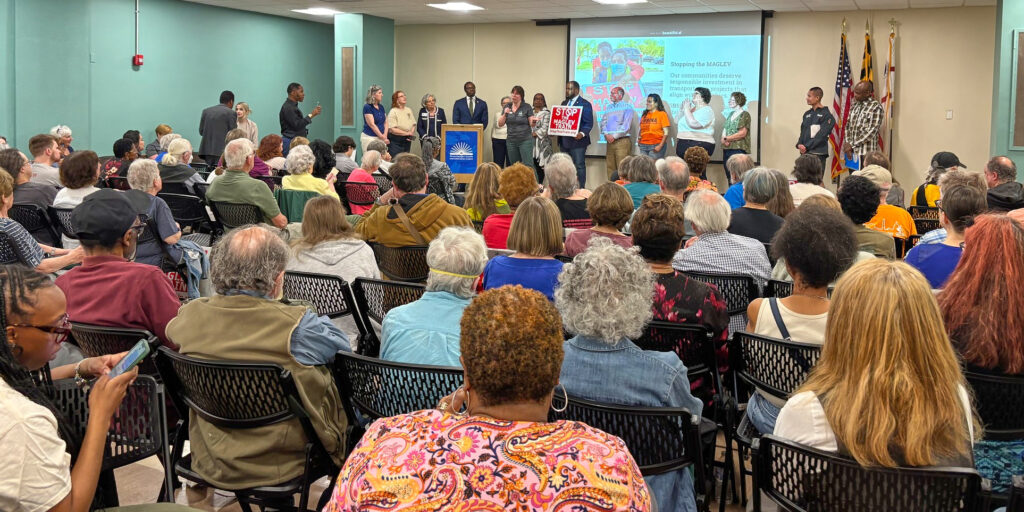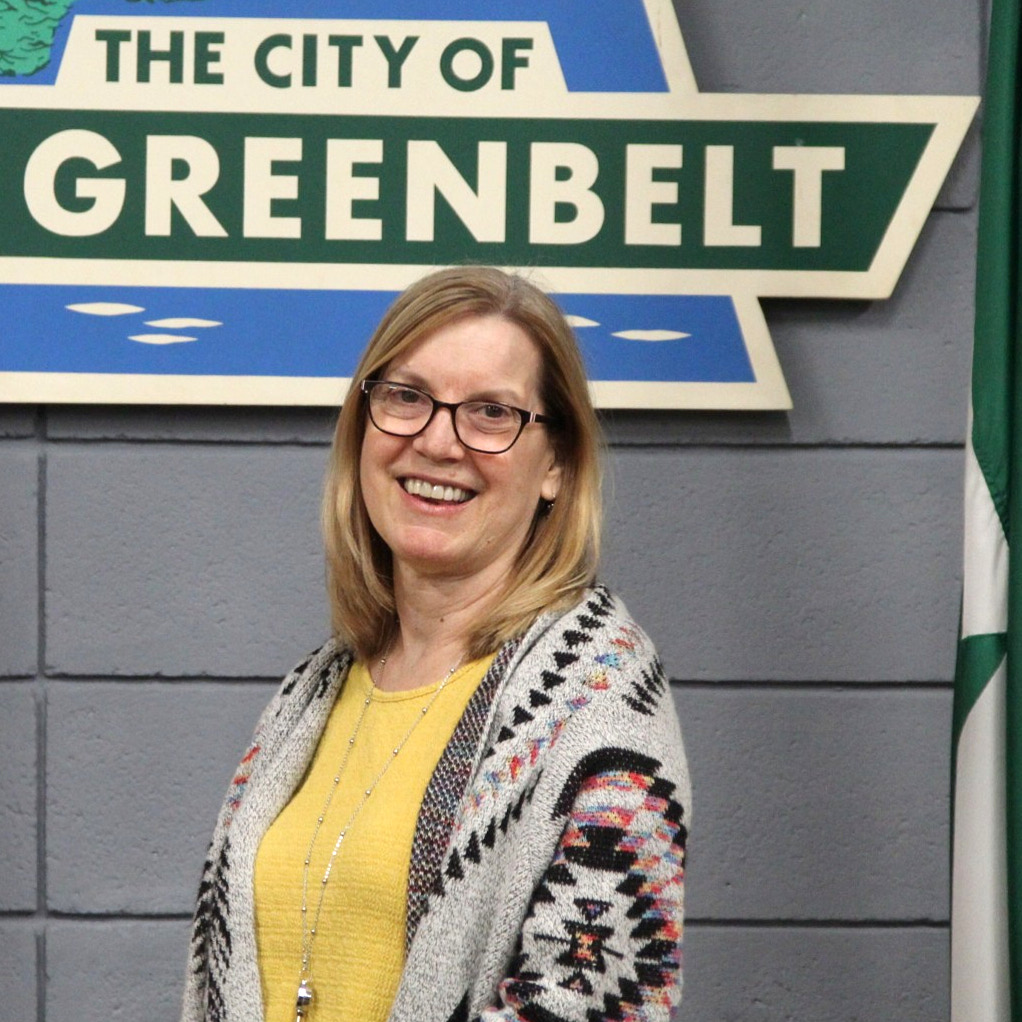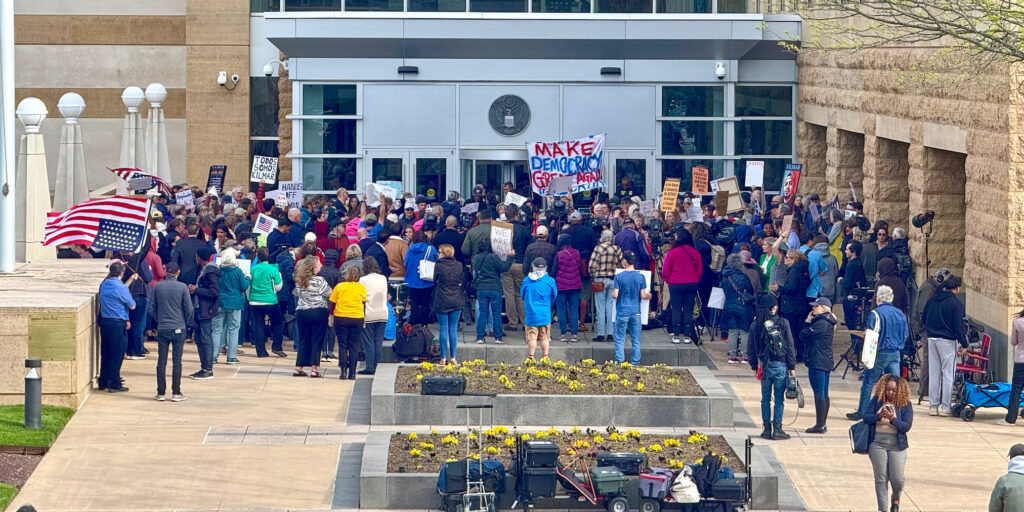Marylanders rallied in Greenbelt on Saturday to stop the Northeast Maglev Project, voicing their frustrations flared by news of Governor Wes Moore’s high praise for the train.
Moore’s excitement for the maglev came after he enjoyed a test ride of the train in Japan on April 12, kicking off a trade mission in Asia. He said he was impressed by the experience and touted the potential of a maglev in Maryland as a harbinger of opportunity for the state.
Residents of Prince George’s County don’t share Moore’s enthusiasm. Susan McCutchen, a Bladensburg resident who volunteers with the Maryland Coalition for Responsible Transit has advocated against the maglev since 2017.
According to McCutchen, Moore had spoken with coalition volunteers while he was still running for office but didn’t give a clear answer about his position on the maglev. He told them to contact Lieutenant Governor Aruna Miller, but they got little response despite efforts to provide her with research and briefings.
“And then all of a sudden, he’s excited like a teenager,” said McCutchen. “It was quite a surprise and we’re pissed.”
McCutchen was one of roughly 100 attendees at the annual post-legislative session meeting held by State Senator Alonzo Washington for constituents. This year, Moore’s excursion in Japan prompted Washington to swiftly change his meeting agenda to allocate time specifically for rallying against the maglev.
He was joined by McCutchen and over a dozen elected officials from Prince George’s and Anne Arundel Counties on a stage in the Greenbelt Library to show their solidarity in the fight against the maglev and respond to questions and comments from residents.
Washington began the discussion by saying that the officials standing on stage had met with Moore multiple times and informed him that their communities opposed the maglev. Still, they had only just learned of his support for it after his ride in Japan.
“Today we’re asking the governor to retract his support, asking him to listen to us and hear why this isn’t going to help us here in our state,” Washington said.
Washington and other officials have tried to push legislation prohibiting the use of state funds for maglev. The project has a $13 billion price tag so far, and the state currently faces a budget deficit of $3 billion, but such bills did not pass, either.
They’ve also tried passing laws preventing the use of eminent domain for the maglev based on the precedent of its use in railroad construction, but those never passed either.
The officials repeated throughout the meeting that although they oppose the maglev, they support “smart mass transit” that will benefit people locally. Washington said that they will continue investing in transit such as Amtrak, the Purple Line and Metro.
To Greenbelt Councilmember Jenni Pompi, smarter mass transit is transit that is affordable, like the bus or Metro, unlike the maglev which she says will be very expensive.
“Providing more routes and more buses through our community that can help our residents who don’t have cars get further,” said Pompi. “That’s what we should be doing.”
Pompi was joined in representing the Greenbelt City Council by Mayor Pro Tem Kristen Weaver, who thanked the various communities represented at the meeting for being there alongside Greenbelters.
“We appreciate all of us standing together and saying the same message that this is not the right project and there are other ways to invest in public transportation,” said Weaver.
Darian Boggs, a Greenbelt resident who spoke at the meeting, also made a distinction between the regional maglev and smart mass transit.
Boggs argued that a maglev is best suited for longer distances, and that once the project reaches major cities further north like Philadelphia, New York and Boston, stops in Baltimore might dry up.
“Let’s say you did have a train that connected to local communities,” said Boggs, “that’d be a very different matter.”
Boggs also voiced concerns about damage from the project’s construction to residential and community properties in Greenbelt, and fears that neither maglev developers nor homeowners’ insurance companies would pay.
Former Greenbelt mayor Judith “J” Davis also stood among the crowd and warned that action from the White House could alter the maglev situation, which has stalled with the project undergoing an environmental review for the past three years.
Davis said that executive orders issued by President Donald Trump to cut environmental regulations, such as the National Environmental Policy Act, and the reductions in the workforce of federal agencies, such as the EPA, could accelerate the maglev’s progress.
“If that gets gutted, that is one protection that we can’t count on,” she said.
Losing that protection could also increase maglev’s environmental burden, a problem that brings the issue to the attention of Marylanders outside of Prince George’s and Anne Arundel counties.
Columbia resident Kurt Schwarz attended the rally on behalf of the Maryland Ornithological Society and said he opposes the maglev because it would destroy hundreds of acres of forest and wildlife habitat around the District of Columbia.
The society has prepared a letter to send to Miller, Maryland Secretary of the Environment Serena McIlwain and Maryland Secretary of Natural Resources Josh Kurtz. Schwarz urged audience members not to give up their struggle, citing a previous bill that would disrupt Maryland wildlands which eventually died despite support from Moore.
“We are with you in this struggle, and hopefully we can persuade the governor to give up on this,” Schwarz said.
Before the meeting had begun, representatives of the maglev project stood outside the Library with their own signs and flyers supporting the train, but they did not stick around for the rally.
McCutchen, who had started visiting Greenbelt as a result of her anti-maglev involvement, said she’s learned one thing about the city: “You don’t mess with Greenbelt.”
Will Hammann is a student at the Philip Merrill College of Journalism writing for the Greenbelt News Review.




